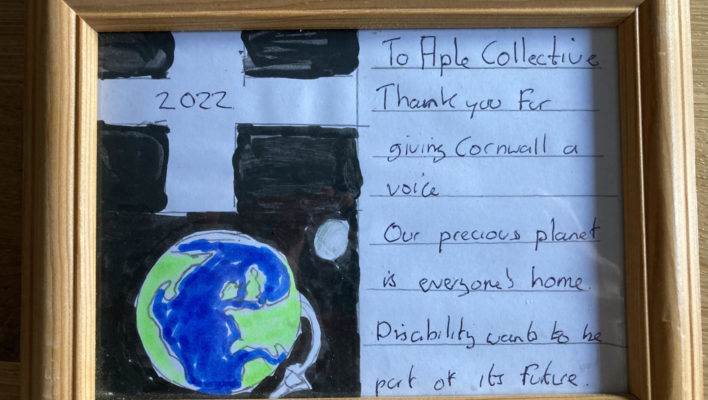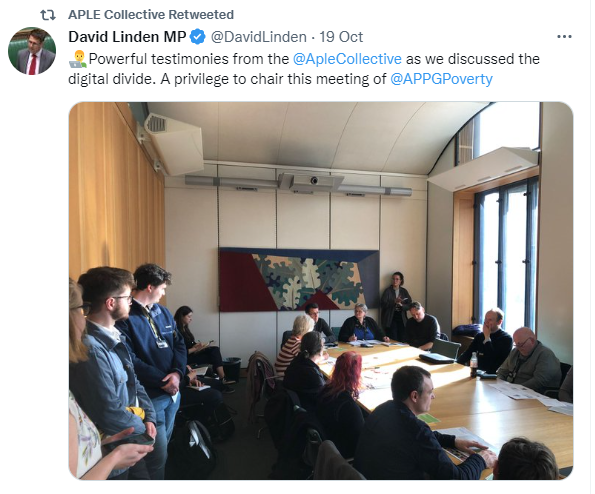The digital divide and families

Illustration by APLE Collective Artist in Residence Christopher Burns
On 19th October, members of the APLE Collective took over the agenda of the All Party Parliamentary Group (APPG) on Poverty. The meeting was an opportunity for Members of Parliament to hear directly from lived experience how the digital divide is holding back our communities, and a chance for APLE to demonstrate the relentless energy they have poured into their campaign on the digital divide. At the end of the meeting, all those present had a chance to think together about workable solutions for the future.
Below is what Thomas Mayes had to say.
“I want to talk to you about the digital divide and what it is like for families within school and social services.
The digital divide is taking away children’s childhoods
“The digital divide is taking away children’s childhoods and preventing them from attending after school clubs’ activities. Instead they have to go and do their homework in the homework club so they can send their homework to their teachers through email. They don’t have the means to do it at home because they don’t have money to have laptops or internet.
Social services and lack of privacy
“There is a load of issues with social services and families caused by the digital divide. There is the fact that families don’t have the right technology or internet at home. Then you have the issue that these meetings are being done over Microsoft teams when some parents don’t have knowledge of how Teams work and/or they don’t have internet. They also have to talk in the presence of their children yet are told they’re not allowed to discuss the case it in front of children. Parents can’t take everything with them in a normal meeting. This is why parent advocates are important to support them take notes. If it’s online, the parent advocates can’t support the parent properly. They would have to put their hand up and talk loud to the parents. Also parents have stuff going on at home that will distract them.
“Hybrid meetings—where people attend both online and in person—are even harder because the internet can dip in and out. Then there is the privacy part of it. The parents can’t see everyone who is in the room with social services, and they cannot have their parent advocate in the same room with them. Parent-to-parents advocacy is a major support for parents in a court case. As they have been through the system themselves, they understand what the parents are going through, they can explain to the parents what’s happening or pull up social services if they are not doing what they are supposed to do to support the family.”
– Thomas Mayes, activist with ATD Fourth World and the APLE Collective

You can read Amanda Button’s presentation here.
You can read an article about the whole event here.
You can read and download the APLE Collective’s briefing paper here.

